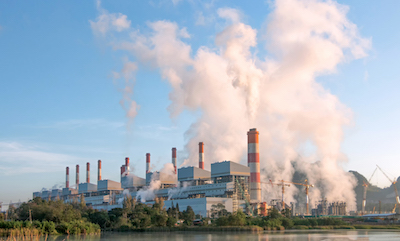What Trump Got Wrong, and Right, in His Speech about the Environment.
 A version of this viewpoint originally appeared in BU Today. Viewpoint articles are written by members of the SPH community from a wide diversity of perspectives. The views expressed are solely those of the author and are not intended to represent the views of Boston University or the School of Public Health. We aspire to a culture where all can express views in a context of civility and respect. Our guidance on the values that guide our commitment can be found at Revisiting the Principles of Free and Inclusive Academic Speech.
A version of this viewpoint originally appeared in BU Today. Viewpoint articles are written by members of the SPH community from a wide diversity of perspectives. The views expressed are solely those of the author and are not intended to represent the views of Boston University or the School of Public Health. We aspire to a culture where all can express views in a context of civility and respect. Our guidance on the values that guide our commitment can be found at Revisiting the Principles of Free and Inclusive Academic Speech.
I think I liked it better when President Trump made the argument that we needed to loosen environmental regulations because of the economic damage they cause. Of course, it’s not true—major environmental regulations have invariably been shown to have health and other benefits far greater than the costs, even in reports issued by the Trump administration. But the argument had the veneer of truthiness.
But in a speech to the nation on Monday, President Trump and members of his Cabinet made the case that the Trump administration has actually worked to strengthen environmental protections, in spite of ample evidence to the contrary. It cannot be a coincidence that this speech came one day after a poll showed that only 29 percent of Americans feel positively about President Trump’s job performance related to climate change, including only 58 percent of Republicans and 27 percent of Independents. Clearly, this includes many individuals who support the president’s agenda, but disagree with his environmental policies.
The speech was rife with misstatements and tangential information—in this case, the gaslighting was actually about gas (and coal, and oil)—but I will leave fact-checking the president’s speech to others. Instead, I would like to highlight two major omissions and one place where the president and I somewhat agree.
Fi
一个
I do agree with one thing that the president and multiple members of his Cabinet said, though I think they interpret their statements far differently than I do. Multiple presenters emphasized that it is a false choice between a strong economy or energy sector and a healthy environment, and that we do not need to sacrifice our jobs to protect the environment. This is a true statement—all evidence indicates that environmental regulation does not have adverse economic impacts and that some policies can even save money and create jobs. However, what President Trump and other speakers were really saying was that we could aggressively expand energy production and fossil fuel use without any real environmental damage. Especially given the need for aggressive action on climate change, and given the air quality and other consequences of fossil fuel combustion, this is simply not true.
The environmental community can take some solace in the fact that the president felt the need to construct a narrative to explain his pro-environment activities, since it is an indication of how popular environmental protection is. Perhaps the next step is actually protecting the environment.
Jonathan Levy is professor and chair of environmental health.